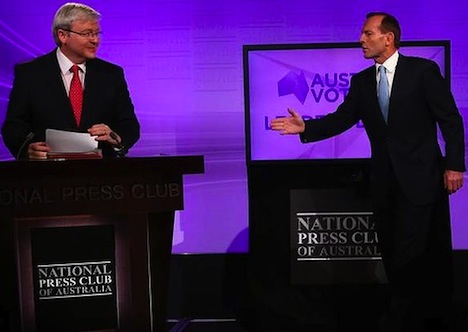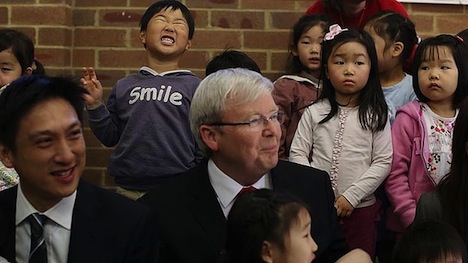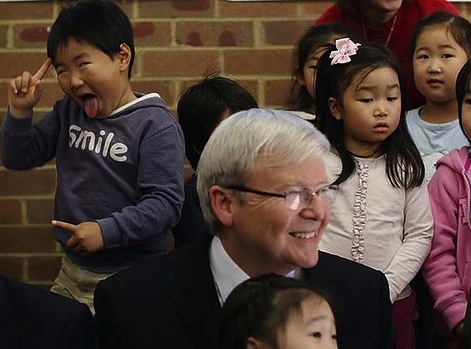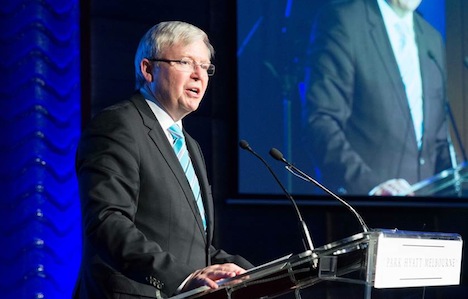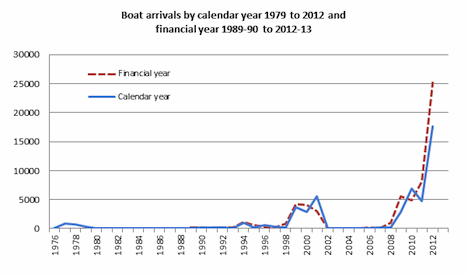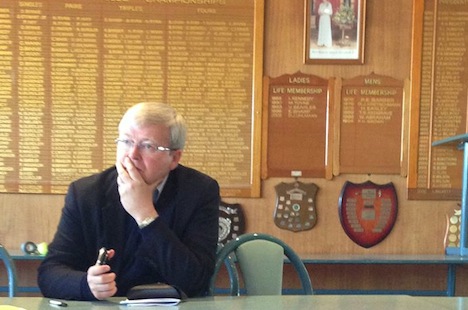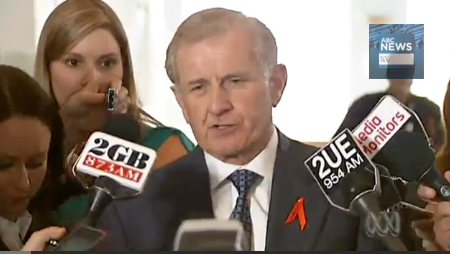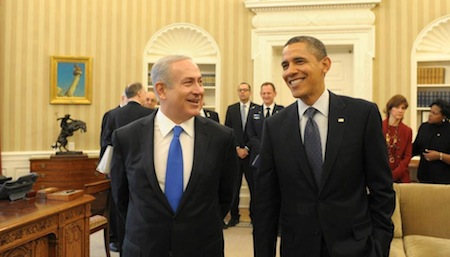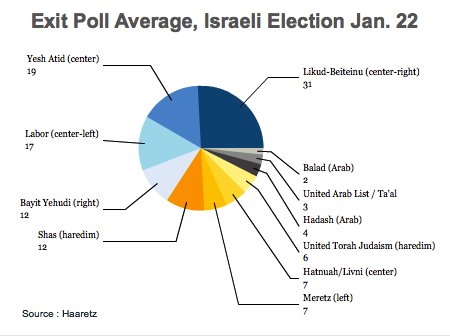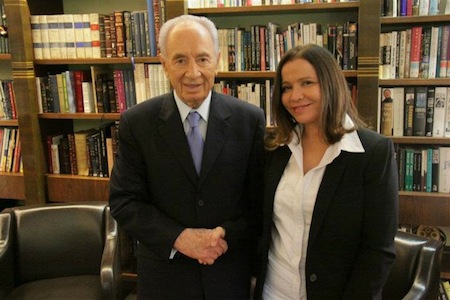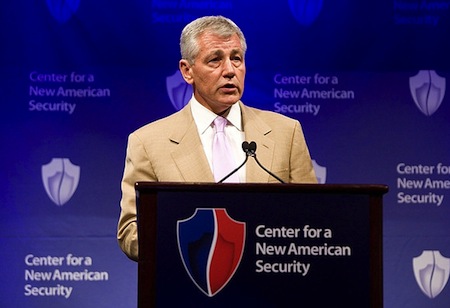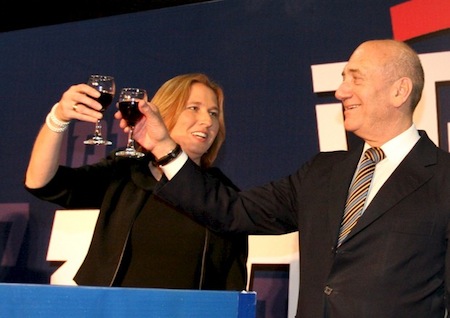After six years of government defined in large part by the bickering of one odd couple of Labor leaders, current prime minister Kevin Rudd is betting that his push to recognize all Australian couples will push his center-left Australian Labor Party to a third term in government. ![]()
In what most commentators agree was a bland performance by both leaders in the first debate between prime minister Kevin Rudd (pictured above, left) and opposition leader Tony Abbott (pictured above, right) in Australia’s election campaign, the biggest news of the night was Rudd’s announcement to take up the cause of full same-sex marriage equality. When Rudd announced in the debate that he would, if reelected, call a vote within 100 days to enact same-sex marriage equality in Australia, his campaign team was ready to go with a fully-formed campaign-in-miniature (with its own website and Twitter handle) and a nifty slogan, ‘It’s time,’ that draws on Labor’s popular slogan from the 1972 election campaign that brought prime minister Gough Whitlam to power. Arguing that ‘folk out there want this to happen,’ especially young voters, Rudd pledged a full vote of conscience if Labor wins the September 7 national elections.
In one sense, it marks a step forward for Australian marriage equality, especially after New Zealand enacted a same-sex marriage statute with the support of prime minister John Key, nearly half of his governing National Party and virtually all of the opposition Labour and Green Parties. Rudd announced earlier this year that he supported full same-sex marriage rights, which put him at odds with the Labor prime minister at the time, Julia Gillard, and it meant that when Rudd replaced Gillard in June after a Labor Party leadership contest, Australia had its first pro-gay marriage prime minister.
Rudd, who came to power for the first time after the November 2007 elections, enacted reforms in December 2008 as prime minister to provide that same-sex couples in Australia would have the same rights as ‘de facto partners’ as cohabitating opposite-sex couples, including inheritance rights, joint tax rights, employment rights, and joint entitlement rights. The reforms received support at the time not only from Labor, but from the center-right Liberal Party of Australia and the Australian Green Party as well.
But though LGBT rights groups welcomed Rudd’s statement, it has more than the whiff of a gimmick to it, coming less than a month before Australians go to the polls and with Rudd either tied or narrowly behind Abbott in the polls. Moreover, there’s no guarantee that holding a vote would actually enact gay marriage. Labor MP Stephen Jones introduced a bill to legalize same-sex marriage in September 2012, and it lost in the House of Representatives on a vote of 98 to 42. A similar vote in Australia’s Senate lost by a vote of 50 to 26.
Abbott, who leads not only the Liberal Party, but the broad Liberal/National Party ‘Coalition’ in Australia’s parliament, has not committed to hold a free vote on same-sex marriage if he becomes prime minister — despite the fact that his sister, Christine Forster, is a lesbian. Abbott, who supported the 2008 reforms, currently opposes changing Australia’s Marriage Act, which currently defines marriage as between one man and one woman: Continue reading Rudd’s same-sex marriage pledge biggest surprise in bland Australian leaders debate
